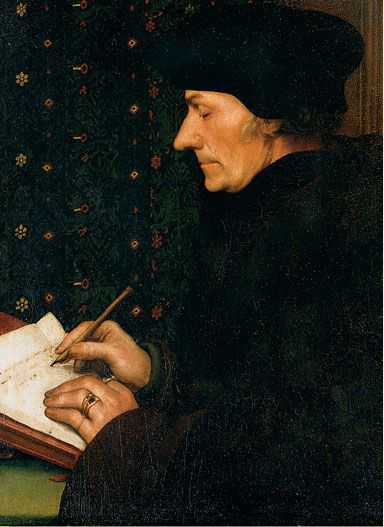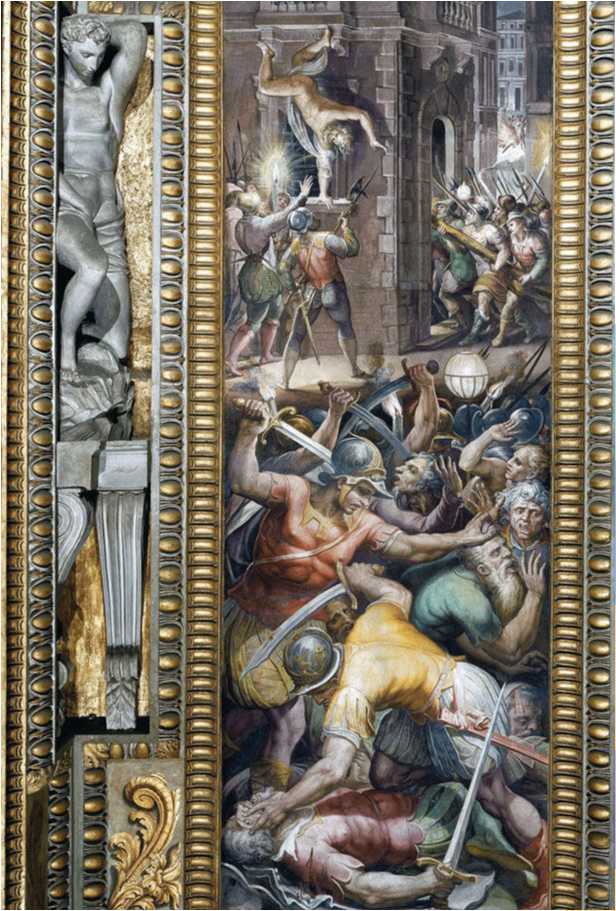As the foremost scholar of the early sixteenth century and a writer with international contacts, Desiderius Erasmus (1466?-1536) maintained a vast correspondence. In the following letter to Wolfgang Capito (1478?—1541), a German scholar and professor of theology at the University of Basel, he explains his belief that Europe was entering a golden age. The letter also reflects the spiritual ideals of northern European humanists.
To Capito
It is no part of my nature, most learned Wolfgang, to be excessively fond of life; whether it is that I have, to my own mind, lived nearly long enough, having entered my fifty-first year, or that I see nothing in this life so splendid or delightful that it should be desired by one who is convinced by the Christian faith that a happier life awaits those who in this world earnestly attach themselves to piety. But at the present moment I could almost wish to be young again, for no other reason but this, that I anticipate the near approach of a golden age, so clearly do we see the minds of princes, as if changed by inspiration, devoting all their energies to the pursuit of peace. The chief movers in this matter are Pope Leo and Francis, King of France.
There is nothing this king does not do or does not suffer in his desire to avert war and consolidate peace. . . and exhibiting in this, as in everything else, a magnanimous and truly royal character. Therefore, when I see that the highest sovereigns of Europe — Francis of France, Charles the King Catholic, Henry [VIII] of Engtand, and the Emperor Maximilian — have set all their warlike preparations aside and established peace upon solid and, as I trust, adamantine foundations, I am led to a confident hope that not only morality and Christian piety, but also a genuine and purer literature, may come to renewed life or greater splendour; especially as this object is pursued with equal zeal in various regions of the world. . . . To the piety of these princes it is due, that we see everywhere, as if

Hans Holbein the Younger, Erasmus (ca. 1521). Holbein persuaded his close friend Erasmus to sit for this portrait and portrayed him at his characteristic work, writing. (Louvre/Scala/Art Resource, NY)
Upon a given signal, men of genius are arising and conspiring together to restore the best literature.
Polite letters, which were almost extinct, are now cultivated and embraced by Scots, by Danes, and by Irishmen. Medicine has a host of champions. . . . The Imperial Law is restored at Paris by William Bude, in Germany by Udalric Zasy; and mathematics at Basel by Henry of Glaris. In the theological sphere there was no little to be done, because this science has been hitherto mainly professed by those who are most pertinacious in their abhorrence of the better literature,* and are the more successful in defending their own ignorance as they do it under pretext of piety, the unlearned
Latin, Greek, and Hebrew.
Vulgar being induced to believe that violence is offered to religion if anyone begins an assault upon their barbarism. . . . But even here I am confident of success if the knowledge of the three languages continues to be received in schools, as it has now begun. . . .
But one doubt still possesses my mind. I am afraid that, under cover of a revival of ancient literature, paganism may attempt to rear its head — as there are some among Christians that acknowledge Christ in name but breathe inwardly a heathen spirit—or, on the other hand, that the restoration of Hebrew learning may give occasion to a revival of Judaism. This would be a plague as much opposed to the doctrine of Christ as anything that could happen. . . . I know that your sincere piety will have regard to nothing but Christ, to whom all your studies are devoted. . . .
Questions for Analysis
1. What does Erasmus mean by a “golden age”?
2. Do education and learning ensure improvement in the human condition, in his opinion? Do you agree?
3. What would you say are the essential differences between Erasmus’s educational goals and those of modern society?
Source: Epistles 522 and 530, from The Epistles of Erasmus, trans. F. M. Nichols (London: Longmans, Green & Co., 1901).

Giorgio Vasari: Massacre of Coligny and the Huguenots (1573). This fresco shows the Saint Bartholomew's Day massacre in Paris, one of many bloody events in the religious wars that accompanied the Reformation. (Vatican Palace/Scala/Art Resource, NY)




 World History
World History









